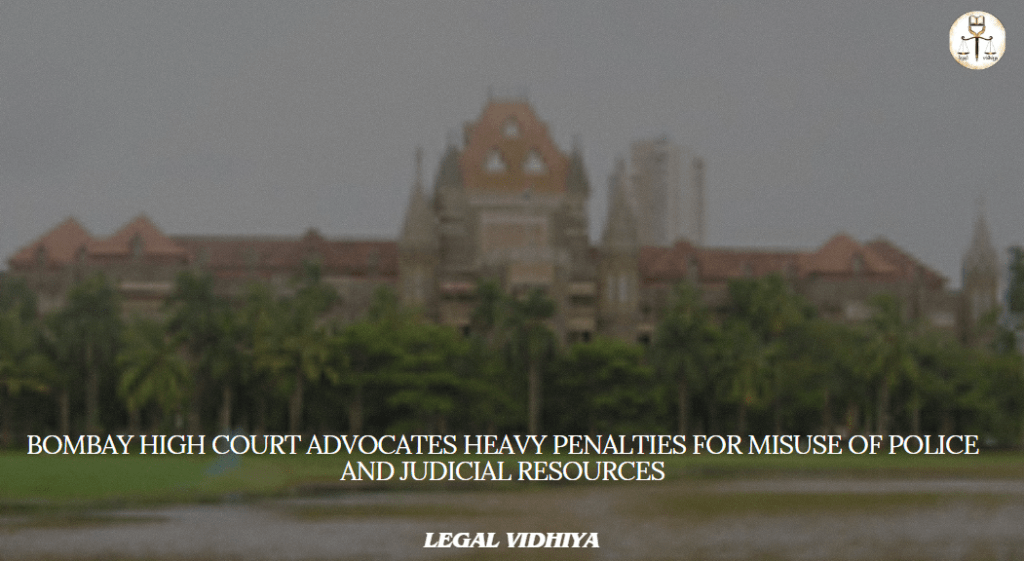
Recently, the Bombay High Court stressed the need for strict measures against people who misuse police and court resources. This stance arose from a case where a woman initially filed a rape complaint but later sought bail for the accused after they reconciled. The court highlighted that such actions waste valuable time that could be better spent on more serious crimes.
Justice Manish Pitale, who presided over the case, pointed out that in cities like Mumbai, personal disputes often turn into criminal cases. These cases, often from failed relationships, take up a lot of police and court time. To tackle this, the court suggested setting up a system to impose heavy penalties on those who file complaints and later retract them or seek leniency after settling their differences.
In the case in question, a man had been in jail since an FIR for rape was filed against him at Mira Bhayander police station in Thane district. Advocate Jyotiram Yadav, representing the accused, claimed that the complaint was due to a misunderstanding between the man and the woman, who were in a relationship. The woman, through an affidavit submitted by advocate Mamta Hasrajani, confirmed that they had resolved their issues and requested bail for the accused.
Despite the affidavit, Additional Public Prosecutor Tanveer Khan opposed the bail, emphasizing the seriousness of the offense. Khan noted that the accused had shared the woman’s mobile number publicly, leading to her receiving obscene messages. He argued that such behaviour should not be excused, even if the parties had reconciled.
Initially, Justice Pitale was hesitant due to the serious allegations but eventually granted bail with specific conditions. However, he expressed concern about the misuse of police and court resources. Justice Pitale noted that the frequent filing and then quashing of FIRs after parties reconcile wastes significant time for both the police and the courts.
The court’s comments bring to light a broader issue in the legal system, where personal disputes escalate into criminal cases only to be withdrawn later. This burdens the judicial system and diverts police resources from more critical investigations. Justice Pitale emphasized the need for a system that imposes substantial costs on those who waste these resources, ensuring that the authorities can focus on more serious offenses.
The Bombay High Court’s stance highlights the importance of judicial efficiency and the responsible use of legal processes. By advocating for penalties on those who misuse police and court time, the court aims to deter frivolous complaints and ensure that legal resources are used effectively. This approach underscores the need to preserve the integrity of the judicial process and ensure that justice is served promptly and efficiently.
In conclusion, the Bombay High Court’s recent observations call for a significant policy shift to address the misuse of judicial and police resources. By imposing heavy costs on individuals who file and later retract serious complaints, the court aims to save valuable time for law enforcement and judicial authorities, allowing them to focus on more pressing cases that need their attention.
NAME: KINJAL PANIGRAHY, COURSE: BBA LLB, COLLEGE: NATIONAL LAW UNIVERSITY, ODISHA, INTERN UNDER LEGAL VIDDHIYA
Disclaimer: The materials provided herein are intended solely for informational purposes. Accessing or using the site or the materials does not establish an attorney-client relationship. The information presented on this site is not to be construed as legal or professional advice, and it should not be relied upon for such purposes or used as a substitute for advice from a licensed attorney in your state. Additionally, the viewpoint presented by the author is of a personal nature




0 Comments